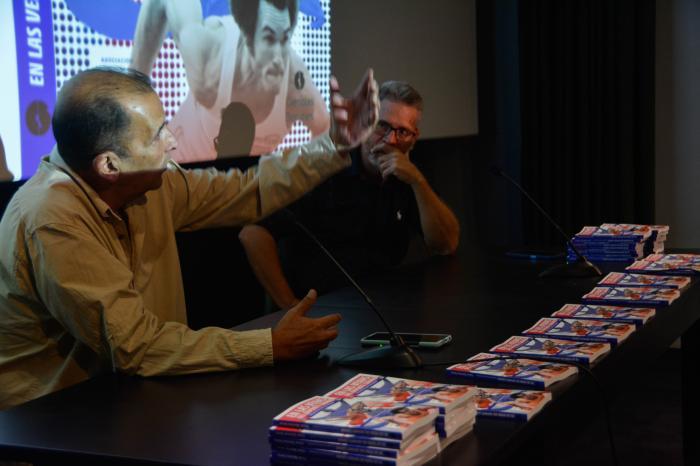
With the story of Albertico, the boy who once gave his only pair of fancy shoes to a friend who had none, and years later became Juantorena, the Elegant of the tracks, begins the book En las venas del deporte cubano. Una potencia de amor y de esperanza, (In the veins of Cuban sports. A power of love and hope), a by journalist Oscar Sánchez Serra.
But it is not only about, although there is a lot of it in these pages, to approach the multiple moving stories behind the Cuban sports feats, but to try to explain the reason for them.
Along with the direct protagonists of the triumphs, coaches and personalities who have held essential responsibilities within the national sports movement appear in the pages of the volume -presented last Tuesday at the Palace of the Captains General- and it is no coincidence: at the core of Fidel's strategy, on which "that beautiful reality that is Cuban sports" was forged, was the preparation of our human capital.
This was highlighted by the author of the title, published by Grupo Editorial Nuevo Milenio, with the collaboration of the Andalusia-Cuba Association. Sánchez Serra also highlighted the human character of the Cuban sports movement, which is, in addition, "an expression of an impressive Cuban identity".
This sentiment was echoed by champions Mijaín López, Mireya Luis and Idalis Ortiz, who, as part of the audience, expressed the need for young people to know the stories of Cuban athletes, their humble origins and the quiet sacrifices on the road to the top of the podium.
Other sports glories, such as Enrique Figuerola, first Olympic medalist of revolutionary sports, and baseball player Rodolfo Puentes, as well as Osvaldo Vento Montiller, president of the Institute of Sports, Physical Education and Recreation, attended the meeting.
Professor and researcher Hassan Pérez Casabona, prologue writer of En las venas..., highlighted, among the successes of this book, the use of literary fiction techniques to outline reality, as well as the author's invitation to find answers, based on commitment, to the challenges of the future.
It is, he said, a necessary book, especially in an era marked by the rampant commercialization of all the intricacies of sports activity.
Pérez Casabona recalled that 70 countries have never won an Olympic medal, and Cuba has more than 200. The contribution of the Cuban sports movement to the dignity and patriotic pride cannot be overlooked, he said.






